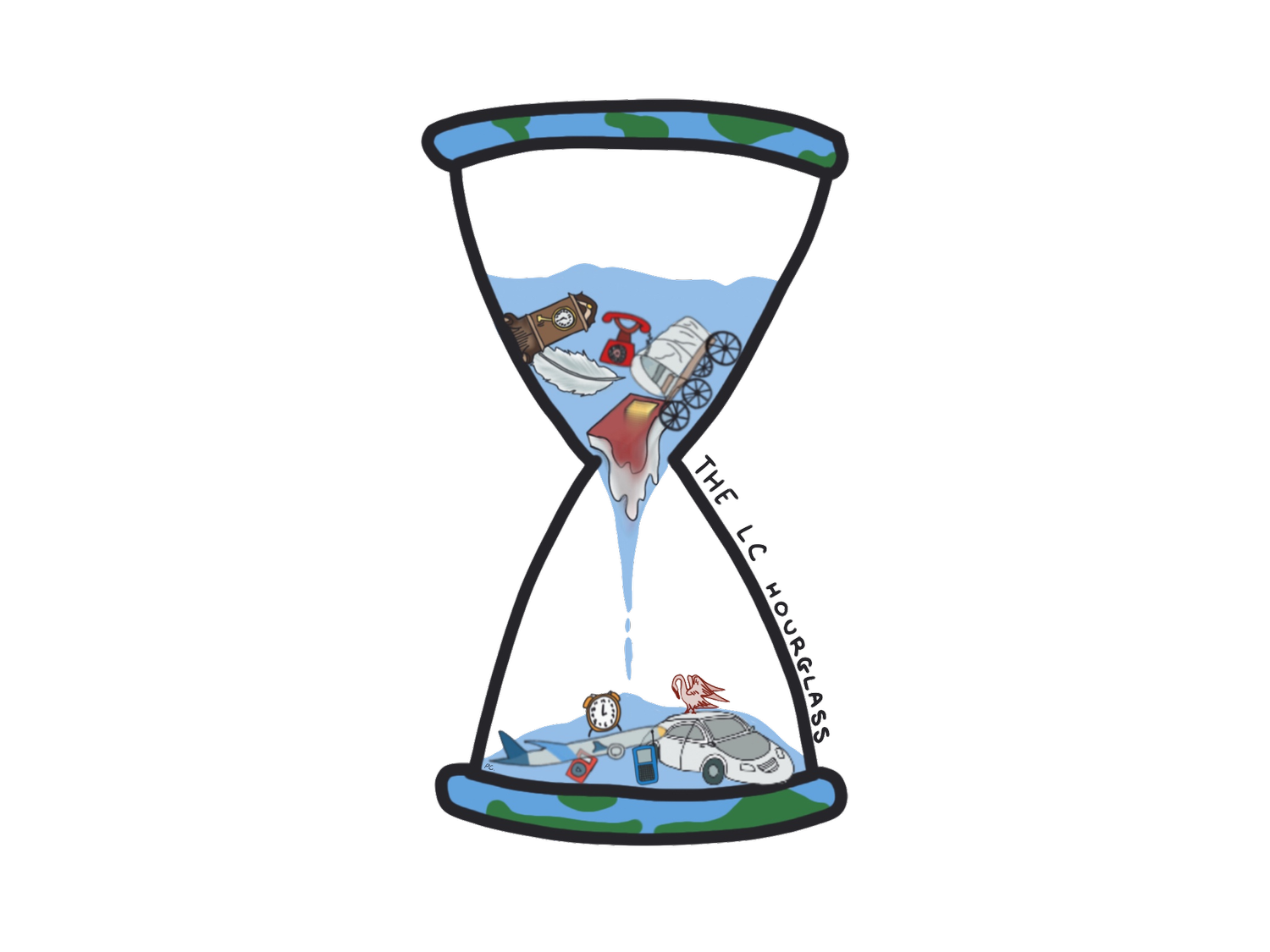Eating Disorders: Physically, Mentally, and Stereotypically
Graphics by Syd Robinow, 2025
By Abby Fullerton, 2026
Rooted in a complex combination of genetic, psychological, and socio-economic factors, eating disorders, despite being among the most lethal psychiatric disorders, are marginalized and neglected within healthcare, causing several undiagnosed and therefore untreated issues. Although eating disorders can affect all ages, genders, and races, the common misconception that these disorders are typically present in white, female adolescents causes disparities in access to treatment, and, as a result, up to 50% of individuals who have an eating disorder are not detected as having any issue at all.This terrifying reality is a critical issue because, without the detection of an eating disorder, both the detrimental physical and mental effects of these disorders, can eat alive at somebody struggling.
Among the variety of eating disorders including anorexia nervosa, bulimia nervosa, binge-eating disorder, avoidant/restrictive food intake disorder (ARFID), and other specified feeding/eating disorder (OSFED), each disorder affects people uniquely. Although the assumption that people affected by eating disorders are always emaciated is common, less than 6% of people with eating disorders are underweight in reality. However, because this stereotype is so largely accepted, many people who are struggling are often not asked about their issues and are not taken seriously by others if they do.iv The inaccurate generalization of these illnesses presents itself as a pressing issue leading to a substantial underdiagnosis and underrepresentation of eating disorders. In addition, whether the cause is a stigma surrounding mental health issues, the fear of giving up their disorder, or another reason completely, individuals affected by eating disorders are often hesitant to reach out, allowing the disorder to lurk in the shadows, festering as it increases the risk of further physical and mental complications.
Addressing the lack of eating disorder treatment is imperative, especially as shown by the severity of the physical effects of these illnesses. Eating disorders have a large spectrum of often critical symptoms varying greatly between the many conditions. For example, anorexia nervosa–categorized by food avoidance due to a weight obsession–can lead to severe symptoms such as malnutrition, osteoporosis, infertility, heart damage, and in the case of over 10,000 people in America each year, death.vi,vii In addition, signified by episodes of binging and purging, bulimia nervosa can cause severe dehydration, several gastrointestinal problems, electrolyte imbalances, tooth enamel decay, and, like anorexia, death. On the other hand, symptoms of binge-eating disorder, which is similar to bulimia with uncontrollable binge eating without purging, include heartburn and more seriously obesity, which ultimately leads to more serious issues such as diabetes. Lastly, although not associated with body image or weight, ARFID can cause severe weight loss, malnutrition, and several gastrointestinal problems.x The severe and profound physical consequences of eating disorders highlight the critical imperative to fix the marginalization of eating disorders so that they can be promptly identified and treated.
In addition to the severity of the atrocious physical effects these disorders have, eating disorders deeply impact the mental state of those struggling as well. Because eating disorders induce a distorted perception of oneself and are rooted in the desire for control over control, these diseases are evil, commonly inducing self-hatred and cyclical behaviors such as obsessive calorie counting or exercise. Similarly, eating disorders commonly co-occur with other disorders such as anxiety and depression for several reasons including feelings of isolation, preoccupation around food, or even chemical imbalances caused by the disorder itself. Moreover, the hyper-fixation on food can completely change one’s personality; those struggling may often feel that conversations regarding weight or food are a direct attack on them, enraging them and further alienating them from loved ones. As shown through the detrimental consequences of eating disorders, these are not diseases that should glamourized despite what the flawed nature of diet culture or social media may say. As a society, it is a fundamental necessity to push back against the preconceived notions surrounding the look of eating disorders and whom they affect so that everyone, regardless of who they are, can receive both the mental and physical support systems needed to recover and thrive properly.
Works Cited
i
Butterfly Foundation. 2021. “Risks and Warning Signs.” Butterfly Foundation. 2021.
https://butterfly.org.au/eating-disorders/risks-and-warning-signs/.
ii Massari, Paul. 2022. “Colloquy Podcast: Eating Disorders Can Be Lethal. We Don’t Treat Them That
Way. | Graduate School of Arts and Sciences.” Gsas.harvard.edu. December 9, 2022.
https://gsas.harvard.edu/news/colloquy-podcast-eating-disorders-can-be-lethal-we-dont-treat-them-way.
iii Ibid.
iv Ibid.
v Butterfly Foundation. 2021. “Risks and Warning Signs.” Butterfly Foundation. 2021.
https://butterfly.org.au/eating-disorders/risks-and-warning-signs/.
vi National Institute of Mental Health. 2021. “Eating Disorders: About More than Food.” National Institute
of Mental Health. 2021. https://www.nimh.nih.gov/health/publications/eating-disorders.
vii Massari, Paul. 2022. “Colloquy Podcast: Eating Disorders Can Be Lethal. We Don’t Treat Them That
Way. | Graduate School of Arts and Sciences.” Gsas.harvard.edu. December 9, 2022.
https://gsas.harvard.edu/news/colloquy-podcast-eating-disorders-can-be-lethal-we-dont-treat-them-way.
viii National Institute of Mental Health. 2021. “Eating Disorders: About More than Food.” National Institute
of Mental Health. 2021. https://www.nimh.nih.gov/health/publications/eating-disorders.
ix “How Dangerous Are Eating Disorders?” 2018. 1st Step Behavioral Health. September 30, 2018.
https://firststepbh.com/blog/dangerous-eating-disorders/. x Ibid.
xi “Mental Health Effects of Recovery | Seeds of Hope.” 2023. Https://Www.seedsofhopesupport.com/.
May 10, 2023. https://www.seedsofhopesupport.com/how-do-eating-disorders-affect-mental-health/.

